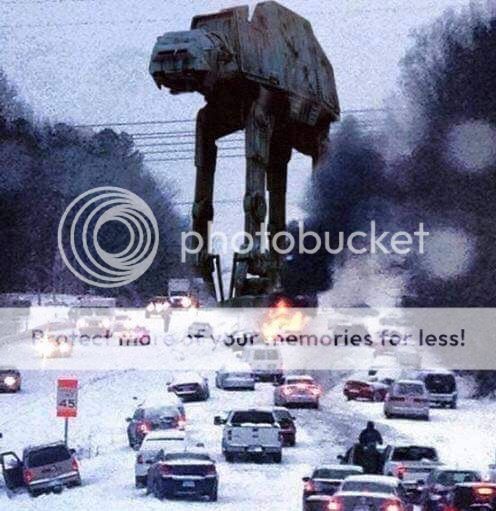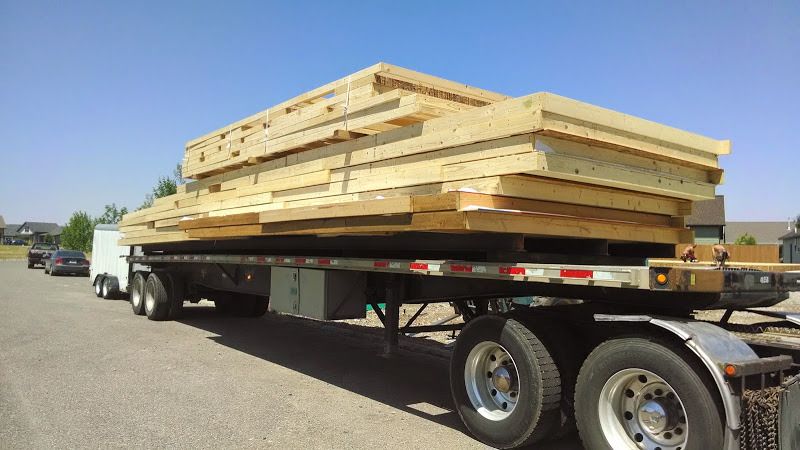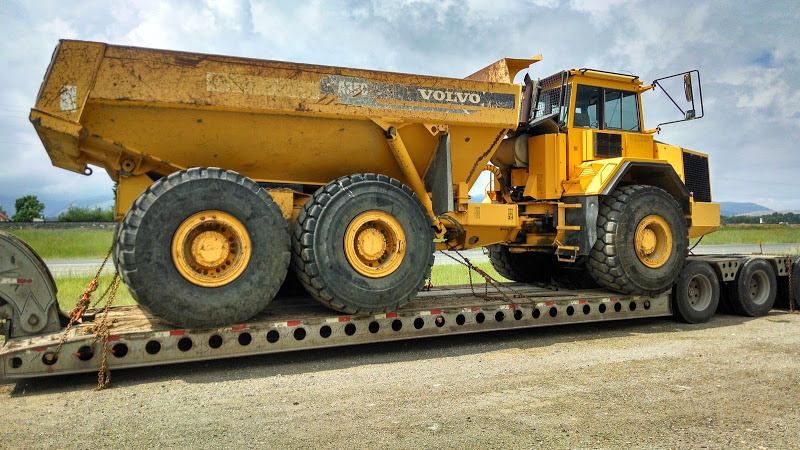Starting With Beverage Distribution: Good Or Bad Idea
Topic 7113 | Page 1
So is someone going to be working alongside you? You'll only have your permit so you can't drive the truck alone, only under supervision.
I can see this being a turnoff for many OTR companies. If you do decide to go OTR one day they won't consider that as experience so you'll need to go through training. They want to see recent OTR experience, if you don't have it you're sort of treated as a rookie.
Also, it would be really nice if you could get that CDL with an accredited school. Companies want to see you with a certificate of training. Getting a CDL your way is fine, but it will eventually bite you in the long run.
CDL:
Commercial Driver's License (CDL)
A CDL is required to drive any of the following vehicles:
- Any combination of vehicles with a gross combined weight rating (GCWR) of 26,001 or more pounds, providing the gross vehicle weight rating (GVWR) of the vehicle being towed is in excess of 10,000 pounds.
- Any single vehicle with a GVWR of 26,001 or more pounds, or any such vehicle towing another not in excess of 10,000 pounds.
- Any vehicle, regardless of size, designed to transport 16 or more persons, including the driver.
- Any vehicle required by federal regulations to be placarded while transporting hazardous materials.
OTR:
Over The Road
OTR driving normally means you'll be hauling freight to various customers throughout your company's hauling region. It often entails being gone from home for two to three weeks at a time.

This used to be the traditional way to get your CDL. I say go for it. And as for it limiting you in the future that is crap except with the larger carriers. I am proof that it can be done. I work for a company with 10 trucks. I had driven only 5 trips before getting my license. After that, I was on my own, no trainer just the keys. Been on my own ever since.
The BS line that you have to go through a school is a bunch of hog wash except if you want to work for a large carrier. It is coming though, the standardized training in the FMCSA regs. I say get your license now. If you have to take some training later, so what? Or you can drive for a smaller carrier and get the OTR experience and then move to a larger carrier if you like. Or get your license now and use that income to put money away to pay for a school.
I normally drive withing my state but just recently I took a trip to Vancouver, WA and then to Frierson, LA and guess what? I made it all legally! So what is the difference if you drive OTR or local? Absolutely nothing except you sleep in the truck more OTR and crossing state lines.
CDL:
Commercial Driver's License (CDL)
A CDL is required to drive any of the following vehicles:
- Any combination of vehicles with a gross combined weight rating (GCWR) of 26,001 or more pounds, providing the gross vehicle weight rating (GVWR) of the vehicle being towed is in excess of 10,000 pounds.
- Any single vehicle with a GVWR of 26,001 or more pounds, or any such vehicle towing another not in excess of 10,000 pounds.
- Any vehicle, regardless of size, designed to transport 16 or more persons, including the driver.
- Any vehicle required by federal regulations to be placarded while transporting hazardous materials.
OTR:
Over The Road
OTR driving normally means you'll be hauling freight to various customers throughout your company's hauling region. It often entails being gone from home for two to three weeks at a time.
CSA:
Compliance, Safety, Accountability (CSA)
The CSA is a Federal Motor Carrier Safety Administration (FMCSA) initiative to improve large truck and bus safety and ultimately reduce crashes, injuries, and fatalities that are related to commercial motor vehicle
FMCSA:
Federal Motor Carrier Safety Administration
The FMCSA was established within the Department of Transportation on January 1, 2000. Their primary mission is to prevent commercial motor vehicle-related fatalities and injuries.
What Does The FMCSA Do?
- Commercial Drivers' Licenses
- Data and Analysis
- Regulatory Compliance and Enforcement
- Research and Technology
- Safety Assistance
- Support and Information Sharing
Fm:
Dispatcher, Fleet Manager, Driver Manager
The primary person a driver communicates with at his/her company. A dispatcher can play many roles, depending on the company's structure. Dispatchers may assign freight, file requests for home time, relay messages between the driver and management, inform customer service of any delays, change appointment times, and report information to the load planners.Most major OTR companies are going to be looking for OTR experience - but if you can start local - and are planning to STAY LOCAL. that's OK.
Most of the hullabaloo around OTR experience - is the experience of running interstate , dealing with time management, weigh stations, varying terrains and weather conditions, etc. - all the things you're not going to get "experience" that an OTR company is looking for, as far as a "non-rookie-hire" goes. There's more to OTR driving, than JUST DRIVING. And you might have to do some period of "training" with any of the majors, even with a CDL and local experience. I notice most OTR "job requirements" list OTR EXPERIENCE.
OTOH - there's more to LOCAL DRIVING for a beverage company - than JUST DRIVING also.
I have a good friend that's "well-placed' in local Pepsi management, and there's always hiring. When I asked him about a driving job - he told me: "you see all those nice end-stands in the supermarkets, with 100 cases, piled 15 feet high? Well YOU get to build them."
So unlike (most) OTR gigs - you will get to FINGERPRINT EVERY LOAD - unless your running from distro to distro. Not trying to throw a wet blanket on this - but beverage, bread, etc. type local distro gigs are hard work (which is why they pay SALARY, not MILEAGE).
I have a friend that drives for SE Freight down here - $25 an hour (straight time), usually gets 60-70 hours a week. But he has to unload at destination. He makes GREAT $$ and benefits - but he has to WORK FOR IT.
Just sayin.
Rick
CDL:
Commercial Driver's License (CDL)
A CDL is required to drive any of the following vehicles:
- Any combination of vehicles with a gross combined weight rating (GCWR) of 26,001 or more pounds, providing the gross vehicle weight rating (GVWR) of the vehicle being towed is in excess of 10,000 pounds.
- Any single vehicle with a GVWR of 26,001 or more pounds, or any such vehicle towing another not in excess of 10,000 pounds.
- Any vehicle, regardless of size, designed to transport 16 or more persons, including the driver.
- Any vehicle required by federal regulations to be placarded while transporting hazardous materials.
OTR:
Over The Road
OTR driving normally means you'll be hauling freight to various customers throughout your company's hauling region. It often entails being gone from home for two to three weeks at a time.
Interstate:
Commercial trade, business, movement of goods or money, or transportation from one state to another, regulated by the Federal Department Of Transportation (DOT).
HOS:
Hours Of Service
HOS refers to the logbook hours of service regulations.
Thanks, both Pat and Daniel! In this scenario I would be working Along side a CDL holder. I am in an area with lots of LTL companies, but the jobs available are competitive. I can't just slide in because the need for driver's isn't that great. My other option is getting on as a dock worker with the intention to drive when the opportunity arises.
I am sort of leaning this direction because I can prove myself and get a beeline into the companies training program.
If there is any real stigma delivering soda and obtaining my CDL that way I would take pause. I am looking to find the quickest way into a good paying job by avoiding the cash outlay. I know I will pay as a dock worker, just not in cash
CDL:
Commercial Driver's License (CDL)
A CDL is required to drive any of the following vehicles:
- Any combination of vehicles with a gross combined weight rating (GCWR) of 26,001 or more pounds, providing the gross vehicle weight rating (GVWR) of the vehicle being towed is in excess of 10,000 pounds.
- Any single vehicle with a GVWR of 26,001 or more pounds, or any such vehicle towing another not in excess of 10,000 pounds.
- Any vehicle, regardless of size, designed to transport 16 or more persons, including the driver.
- Any vehicle required by federal regulations to be placarded while transporting hazardous materials.
LTL:
Less Than Truckload
Refers to carriers that make a lot of smaller pickups and deliveries for multiple customers as opposed to hauling one big load of freight for one customer. This type of hauling is normally done by companies with terminals scattered throughout the country where freight is sorted before being moved on to its destination.
LTL carriers include:
- FedEx Freight
- Con-way
- YRC Freight
- UPS
- Old Dominion
- Estes
- Yellow-Roadway
- ABF Freight
- R+L Carrier

Larry, my first load, the day after getting my license was 10' wide into a residential neighborhood....

That was on Friday and on Monday I moved this....

While I agree that this is not the norm, it can be done. We have had several drivers start this way. One of our drivers started in the shop and now pulls the 9 axle RGN.

A small flatbed company in Missoula that offers CDL training caught my eye, Pat. The family has no desire to move to Montana though.
CDL:
Commercial Driver's License (CDL)
A CDL is required to drive any of the following vehicles:
- Any combination of vehicles with a gross combined weight rating (GCWR) of 26,001 or more pounds, providing the gross vehicle weight rating (GVWR) of the vehicle being towed is in excess of 10,000 pounds.
- Any single vehicle with a GVWR of 26,001 or more pounds, or any such vehicle towing another not in excess of 10,000 pounds.
- Any vehicle, regardless of size, designed to transport 16 or more persons, including the driver.
- Any vehicle required by federal regulations to be placarded while transporting hazardous materials.

So unlike (most) OTR gigs - you will get to FINGERPRINT EVERY LOAD - unless your running from distro to distro. Not trying to throw a wet blanket on this - but beverage, bread, etc. type local distro gigs are hard work (which is why they pay SALARY, not MILEAGE).
This information is exactly what I am looking for, thanks Rick!
OTR:
Over The Road
OTR driving normally means you'll be hauling freight to various customers throughout your company's hauling region. It often entails being gone from home for two to three weeks at a time.

I actually WANT to get into food/beverage distribution eventually because a local job with some manual labor involved sounds fantastic to me. I would love the opportunity you're being offered, getting trained for your CDL by a company in that sector, but everyone has different goals and needs.
CDL:
Commercial Driver's License (CDL)
A CDL is required to drive any of the following vehicles:
- Any combination of vehicles with a gross combined weight rating (GCWR) of 26,001 or more pounds, providing the gross vehicle weight rating (GVWR) of the vehicle being towed is in excess of 10,000 pounds.
- Any single vehicle with a GVWR of 26,001 or more pounds, or any such vehicle towing another not in excess of 10,000 pounds.
- Any vehicle, regardless of size, designed to transport 16 or more persons, including the driver.
- Any vehicle required by federal regulations to be placarded while transporting hazardous materials.
So I'm not sure how it will effect your chances later going OTR but if you're happy local then I would stay local. Like you I started with a local place. Although I do travel most of the northeast I'm home pretty much every night. I honestly don't care if it hurts my standing with OTR companies because I wanted local in the first place. Local trends to pay better and gives you a better chance of maintaining a home/family life.
If you ever decide that you want to try OTR I would just deal with whatever training they want you to go through because you have an unbeatable deal going for you right now.
OTR:
Over The Road
OTR driving normally means you'll be hauling freight to various customers throughout your company's hauling region. It often entails being gone from home for two to three weeks at a time.
New Reply:
New! Check out our help videos for a better understanding of our forum features

















Preview:
This topic has the following tags:
Choosing A Trucking Company Home Time







 TT On Facebook
TT On Facebook
I am gung ho on breaking into trucking and getting my CDL debt free. My focus is local so I have some family time. A co-worker has a line for me at a beverage distributor, they would take me on with a permit and help me get my CDL while working. It offers good benefits plus overtime with shifts from 5a.m. to 3p.m. M-F.
Now my question is: If I go this route, would it limit my opportunities in the industry? If anyone has any knowledge that would be helpful.
Thanks in advance
CDL:
Commercial Driver's License (CDL)
A CDL is required to drive any of the following vehicles: